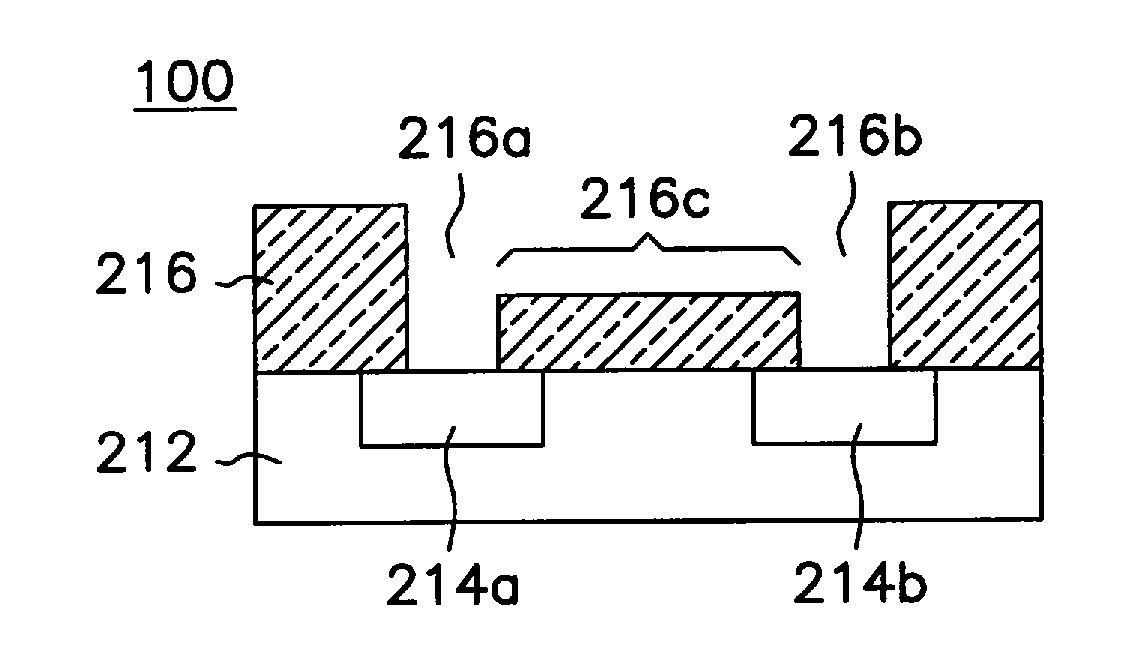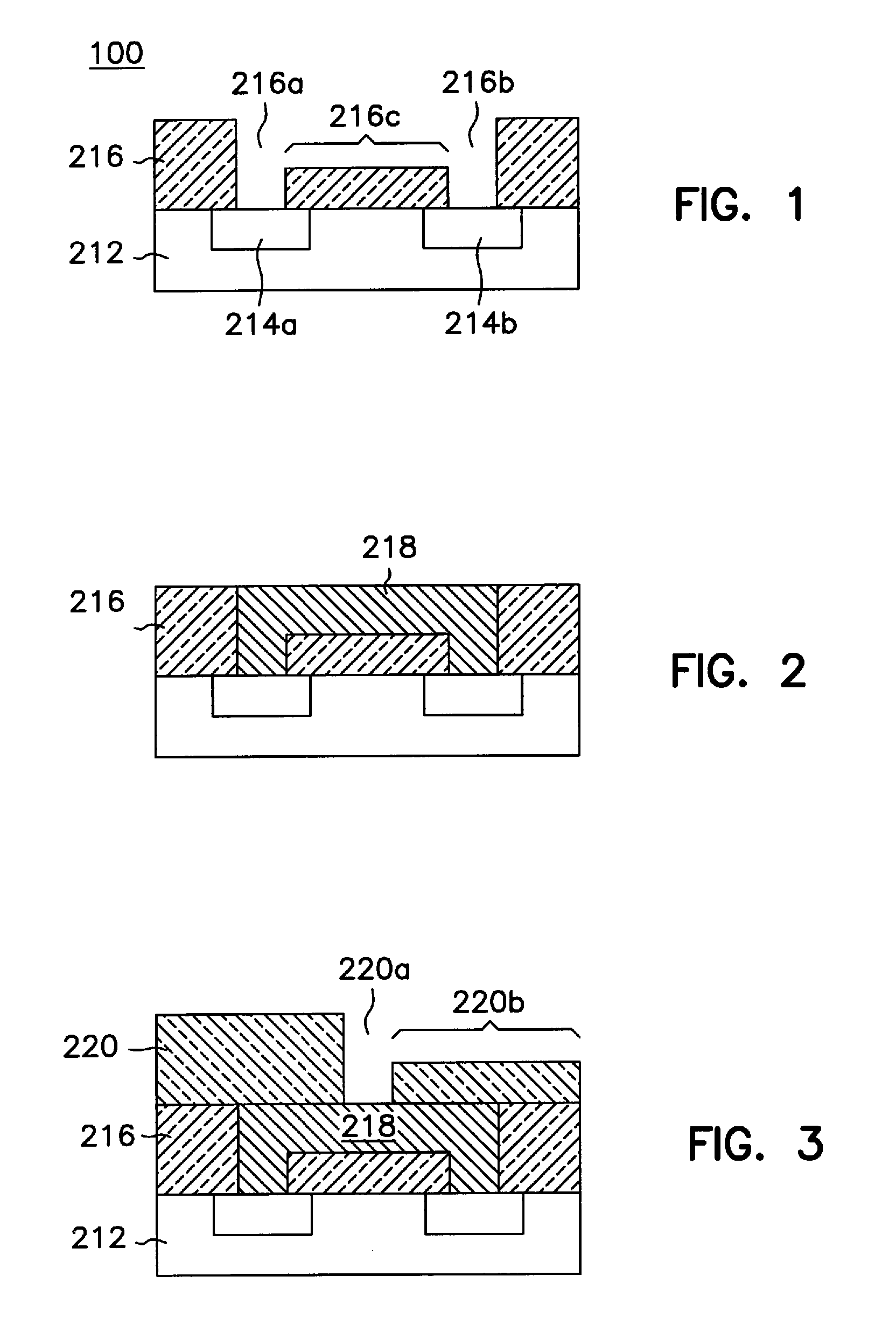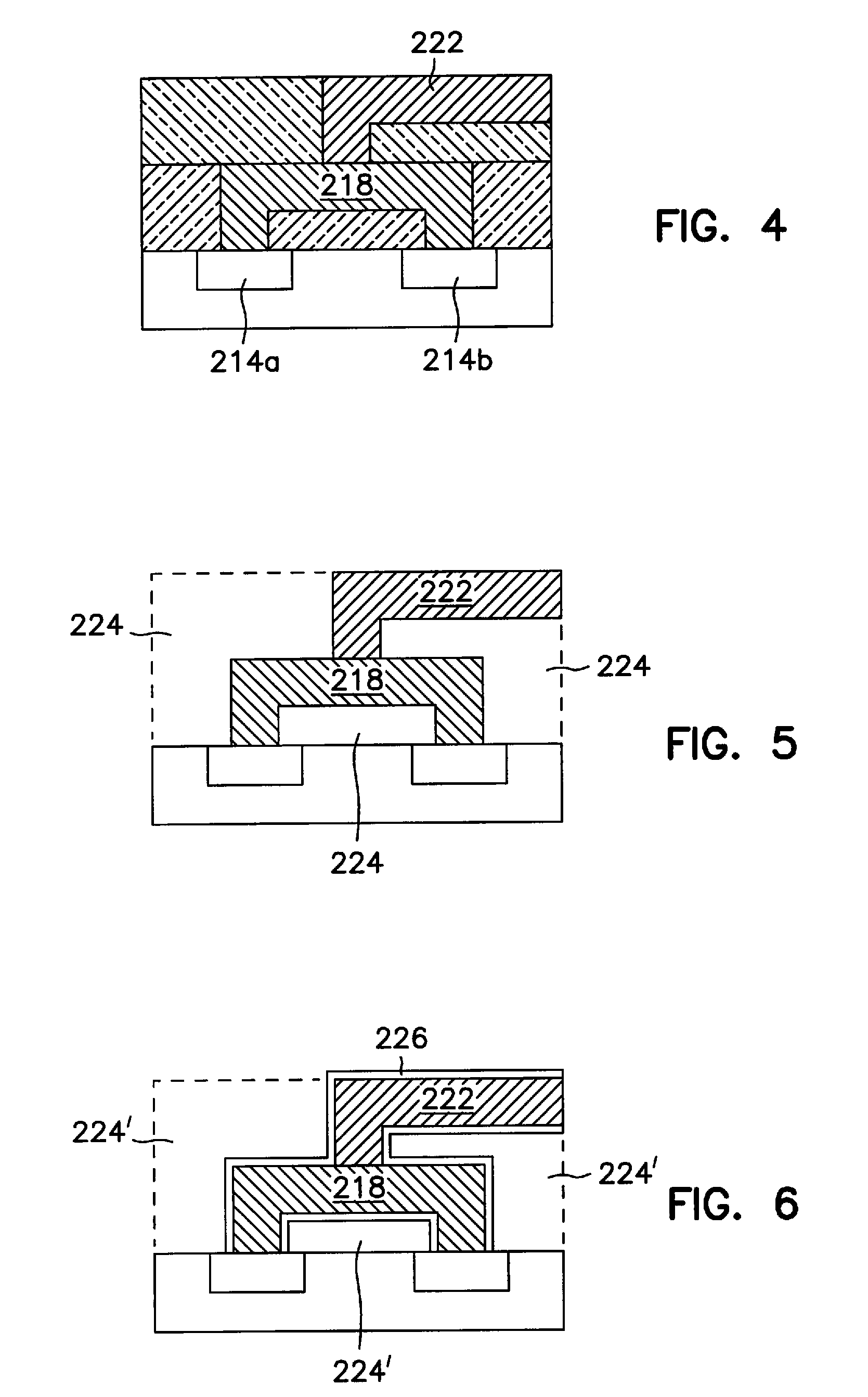Method for making integrated circuits
a technology of integrated circuits and manufacturing methods, applied in the direction of semiconductor/solid-state device manufacturing, basic electric elements, electric devices, etc., can solve the problems of reducing the performance of integrated circuits, requiring several interconnected levels of wiring, and negating some performance advantages
- Summary
- Abstract
- Description
- Claims
- Application Information
AI Technical Summary
Benefits of technology
Problems solved by technology
Method used
Image
Examples
Embodiment Construction
[0018] The following detailed description, which references and incorporates FIGS. 1-8, describes and illustrates specific embodiments of the invention. These embodiments, offered not to limit but only to exemplify and teach the concepts of the invention, are shown and described in sufficient detail to enable those skilled in the art to implement or practice the invention. Thus, where appropriate to avoid obscuring the invention, the description may omit certain information known to those of skill in the art.
[0019]FIGS. 1-7 show a number of cross-sectional views of a partial integrated-circuits assembly 100, which taken collectively and sequentially, illustrate a unique exemplary method of making integrated circuits, and more particularly making integrated-circuit wiring in accord with teachings of the present invention. The method, as shown in FIG. 1, begins with a known integrated-circuit assembly or structure 100, which can exist within any integrated circuit, a dynamic-random-a...
PUM
| Property | Measurement | Unit |
|---|---|---|
| thickness | aaaaa | aaaaa |
| thickness | aaaaa | aaaaa |
| thick | aaaaa | aaaaa |
Abstract
Description
Claims
Application Information
 Login to View More
Login to View More - R&D
- Intellectual Property
- Life Sciences
- Materials
- Tech Scout
- Unparalleled Data Quality
- Higher Quality Content
- 60% Fewer Hallucinations
Browse by: Latest US Patents, China's latest patents, Technical Efficacy Thesaurus, Application Domain, Technology Topic, Popular Technical Reports.
© 2025 PatSnap. All rights reserved.Legal|Privacy policy|Modern Slavery Act Transparency Statement|Sitemap|About US| Contact US: help@patsnap.com



